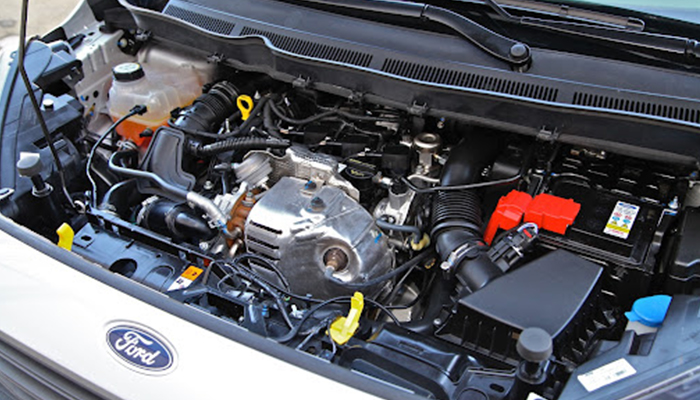Enhance Your Ride with a Rebuilt Ford Transit 2.0 EcoBlue Engine
Ford Transit 2.0 EcoBlue Engine Replacement: Your Ultimate Guide
Embarking on a
journey to enhance your ride often involves considering a rebuilt Ford Transit 2.0 EcoBlue engine, a transformative choice for optimizing
performance and ensuring a reliable driving experience. This ultimate guide
provides valuable insights into the benefits and considerations of opting for a
Ford Transit 2.0 EcoBlue engine replacement.
A rebuilt engine
serves as a cost-effective alternative to purchasing a brand-new one. Skilled
technicians meticulously disassemble, inspect, and refurbish the engine's
components, ensuring it meets or surpasses original specifications. This
comprehensive process revitalizes the engine's performance, providing a
budget-friendly solution without compromising on quality.
The advantages
of a rebuilt Ford Transit 2.0 EcoBlue engine extend beyond affordability. By
repurposing existing components, this option aligns with sustainable practices,
contributing to environmental conservation by reducing the demand for new
manufacturing.
Finding a Low Mileage Ford Transit 2.0 EcoBlue Engine for Sale
Discovering a low
mileage Ford
Transit 2.0 EcoBlue engine for sale involves a strategic exploration to
secure optimal performance and longevity for your vehicle. Low mileage engines,
originating from vehicles with minimal usage, offer several advantages that
contribute to overall efficiency and reliability.
One notable
advantage is the potential for increased longevity. Low mileage engines have
undergone less wear and tear, resulting in components that are generally in
better condition. This translates to a more durable and resilient engine,
providing extended performance over time.
Cost-effectiveness
is a key consideration when seeking a low mileage engine. While these engines
may come with a slightly higher initial cost, the long-term benefits often
outweigh the expense. Lower maintenance requirements and reduced likelihood of
encountering issues make low mileage engine options a value-driven choice.
Fuel efficiency
is another noteworthy benefit associated with low mileage engines. With fewer
miles on the odometer, these engines tend to be more fuel-efficient,
potentially leading to savings in fuel costs over the life of the vehicle.
Exploring the Cost of a Rebuilt Ford Transit 2.0 EcoBlue Engine
Understanding
the cost of a rebuilt Ford Transit 2.0 EcoBlue engine involves delving into
various factors that influence the overall expense. Rebuilt engines offer a
cost-effective alternative to purchasing a new one, but the pricing is
influenced by several key considerations.
The primary
determinant of the cost is the extent of refurbishment during the rebuilding
process. Skilled technicians carefully disassemble the engine, inspect each
component, and replace or refurbish worn parts. The complexity and quality of
this process contribute significantly to the overall cost.
Labor costs
constitute a substantial portion of the expense. Skilled professionals are
required to perform intricate tasks such as disassembly, inspection, and
reassembly. The efficiency gained from a well-executed rebuild often justifies
these labour expenses through improved performance and longevity.
The choice of
replacement parts and materials further impacts the cost. Genuine Ford Transit
2.0 EcoBlue engine components typically come at a higher price but ensure
compatibility and reliability. Opting for aftermarket or refurbished parts may
offer cost savings, but careful consideration of quality is necessary.
Engine Repair Near Me: Is It Time for a Ford Transit 2.0 EcoBlue Engine
Replacement?
Determining
whether it's time for a Ford Transit 2.0 EcoBlue engine replacement involves a
careful evaluation of the engine's condition and performance. Localizing your
search for engine repair services nearby is a crucial step in addressing
potential issues and deciding on the best course of action.
Start by
observing signs of engine trouble, such as unusual noises, reduced power, or
persistent check engine lights. If these indicators persist despite routine
maintenance and repairs, it may be an opportune moment to consider an engine
replacement.
Engaging with
local engine repair specialists is essential in this decision-making process.
Skilled technicians can conduct thorough diagnostics to pinpoint the root
causes of the issues. Their expertise aids in determining whether a replacement
is necessary or if specific repairs can restore optimal performance.
Consider factors
such as the engine's age, mileage, and the extent of wear and tear. If your
Ford Transit 2.0 EcoBlue engine has endured significant usage and repairs are
becoming more frequent and costly, a replacement might offer a more
cost-effective and reliable solution.
Reconditioned Ford Transit 2.0 EcoBlue Engine: What You Need to Know?
Understanding a reconditioned
Ford Transit 2.0 EcoBlue engine involves key considerations to ensure a
well-informed decision when seeking performance and reliability. A
reconditioned engine, often considered a practical alternative to a new one,
undergoes a meticulous refurbishment process that merits attention.
The
refurbishment process entails skilled technicians disassembling the engine to
inspect and address wear and tear. Worn or damaged components are replaced or
refurbished, aiming to restore the engine to meet or surpass its original
specifications. This comprehensive approach contributes to reliable performance
without the hefty price tag associated with brand-new engines.
One significant
advantage is the cost-effectiveness of reconditioned engines. The refurbishment
process offers savings compared to purchasing a new engine while delivering
comparable performance. This makes reconditioned options an attractive choice
for vehicle owners seeking an economical solution without compromising on
reliability.
Environmental
considerations also come into play with reconditioned engines. By repurposing
existing components, this option aligns with sustainable practices, reducing
the environmental impact associated with new manufacturing.
Price Comparison for Ford Transit 2.0 EcoBlue Engine Replacement Options
Comparing prices
for Ford Transit 2.0 EcoBlue engine replacement options is a crucial step in
making an informed decision that aligns with your budget and performance
expectations. Several factors contribute to the overall cost, and understanding
these elements aids in navigating the various replacement choices available in
the market.
The first
consideration is the type of replacement engine, with options including new,
used, rebuilt, and reconditioned engines. New engines often come with a higher
price tag, while used engines may offer a more economical solution. Rebuilt and
reconditioned engines strike a balance between performance and cost, undergoing
refurbishment processes to ensure reliability without the expense of brand-new
components.
Labor costs play
a significant role in the overall price. Skilled technicians are required for
the disassembly, installation, and adjustments during the engine replacement
process. Labor rates can vary based on the service provider's expertise and
location.
The choice of
replacement parts also influences the cost. Genuine Ford Transit 2.0 EcoBlue
engine parts may be pricier but ensure compatibility and reliability. Opting
for aftermarket or refurbished parts can offer cost savings, but it's essential
to consider the quality and long-term performance implications.
Unveiling Updates and New Technology in Ford Transit 2.0 EcoBlue Engine
The Ford Transit
2.0 EcoBlue engine stands at the forefront of automotive innovation,
continuously evolving with updates and new technologies to enhance performance,
efficiency, and overall driving experience. The latest advancements in this
engine exemplify a commitment to staying at the cutting edge of automotive
engineering.
One notable
update lies in the incorporation of advanced fuel injection systems. Precision
in fuel delivery ensures optimized combustion, boosting power output while
minimizing emissions. This not only enhances overall engine performance but
also aligns with increasingly stringent environmental standards, underscoring
Ford's dedication to sustainability.
The integration
of turbocharging technology is another noteworthy addition. Turbocharged
engines compress incoming air, resulting in improved fuel efficiency without
compromising on horsepower. This technological enhancement contributes to a
dynamic and responsive driving experience across various conditions.
Used Ford Transit 2.0 EcoBlue Engine for Sale: A Smart Choice?
Considering a used
Ford Transit 2.0 EcoBlue engine for sale prompts a strategic evaluation of
benefits and considerations, making it a potential smart choice for various
reasons. Used engines offer an economical solution without compromising
reliability.
One notable
advantage is the cost-effectiveness associated with purchasing a used engine.
The initial cost is generally lower compared to a new engine, making it an
attractive option for those seeking efficient performance without the expense
of a brand-new component.
Used engines are
often sourced from vehicles with relatively low mileage, preserving the overall
condition of the components. This can translate to increased longevity and
reliability, providing an engine that aligns with performance expectations.
Top-notch Technology and Features in New Ford Transit Engines
The new Ford
Transit engines showcase a pinnacle of automotive technology and features,
setting a benchmark for performance, efficiency, and innovation. These
powerhouses are equipped with cutting-edge advancements that redefine the
driving experience.
One standout
feature is the incorporation of state-of-the-art fuel injection technology.
Precision in fuel delivery enhances combustion efficiency, maximizing power
output while minimizing emissions. This not only elevates overall engine
performance but also aligns with stringent environmental standards, reflecting
a commitment to sustainability.
Turbocharging
technology further distinguishes these engines. By compressing incoming air,
turbocharged engines optimize fuel efficiency without compromising on
horsepower. This technological integration ensures a responsive and dynamic
driving experience across various conditions, meeting the demands of modern
drivers.
Advanced engine management systems play a pivotal role. These systems continuously monitor and adjust parameters like fuel injection timing and air-fuel mixture in real-time. This adaptability ensures optimal engine operation under diverse circumstances, contributing to longevity and reliability.




Comments
Post a Comment